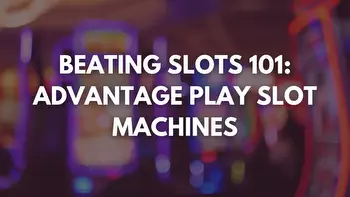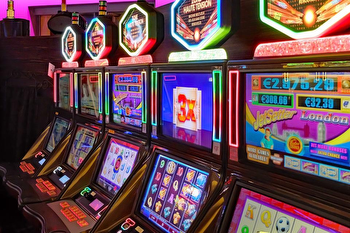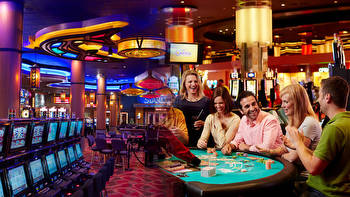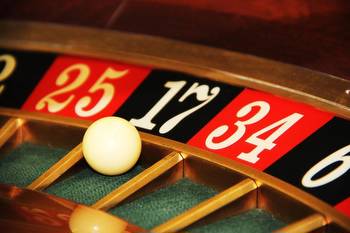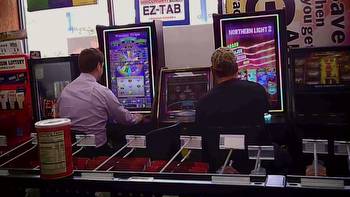Is There Such A Thing As An Advantage Slot Player?

Ari Mizrachi has spent his career in the casino industry, cutting his teeth as a poker and table games specialist back in the day.
In the felted realm, advantage players (APs) — card counters or anyone who’d developed a system to exploit a weakness within a game, be it a built-in shortcoming or a dealer’s deficiency — were commonplace, and casino executives have long done everything in their power to minimize the amount of APs on their properties.
“When I grew up in the business, there was such a focus on table games advantage play — surveillance teams, account teams,” Mizrachi said during a CDC Gaming-sponsored webinar he hosted Thursday. “We don’t want someone coming through the door who will exploit something, even though they’re not cheating.”
A few years ago, Mizrachi, who’s now the head of North American business for Tangam Systems, was playing slots at a Las Vegas casino when a shabbily dressed man with holes in his clothes tapped him on the shoulder. He told Mizrachi that while he didn’t have any money, he noticed a nearby machine that was “in a positive state.” The man then informed Mizrachi that he’d show him which machine it was if he promised to split the profits.
Mizrachi had heard of advantage slot players, but had never seen one in the wild. So, treating the man’s offer as an educational opportunity, he took him up on it. At the man’s direction, Mizrachi sat down at the machine in question and made a $16 profit in 15 minutes. Per their agreement, both he and the man walked away $8 richer.
Initially, Mizrachi didn’t think much of the interaction. After all, how lucrative could advantage slot play be if the gentleman who approached him was dressed like a hobo and had to be fronted money to profit from his hunch? But then Mizrachi, who parses data for a living, scrutinized the behavior of certain players and came away convinced that APs were a pervasive presence in the slot ecosystem.
Advantage slot play would not be possible without the presence of persistence games, which are machines that, as their name suggests, reward extended play with the increased prospect of riches. While these types of machines first appeared on casino floors in the mid-‘90s, they vanished for a while and didn’t catch on en masse until about five years ago.
Using the example of a short-cycle persistence slot, if the game’s cycle is 10 spins and someone walks away after eight, then, as Mizrachi explained, “that machine is in a positive state.”
This is where an observant AP will pounce, conscious of the fact that a profit point could be right around the corner. But, as Mizrachi pointed out, it’s not really the short-cycle persistence slots that are of concern to casino managers — it’s the long-cycle versions, where a normal customer can go “hundreds, if not thousands, of handle pulls and will never experience the lows of the games and the highs of the games.”
The slot AP is focused on long-cycle slots, and to finagle their way into the chair of a machine that is in or about to achieve a positive state, they will often hover over players—many of whom have no idea they’re playing a persistence game—in hopes of intimidating or annoying them into walking away.
“Those advantage players are jumping in their seats,” said Mizrachi.
Harking back to his table-game days, Mizrachi compared slot advantage players to “hard counters” in blackjack who “are taking advantage of what is almost a flawed game. Somebody that’s much smarter than me has come up with a system to exploit that flaw. Casino operators spend a lot of time making sure those customers don’t enter their building. Nobody wants a hustler coming through the door that’s not going to spend money in their casino, get a hotel room, buy a meal.”
Another way of understanding a slot AP’s m.o. is to think about pull-tab tanks. There’s a fixed amount of prizes of different value in each tank, each of which is crossed off when it’s claimed. A savvy pull-tab player will take a look at the remaining prizes relative to the number of tabs left in the tank and pay to put a hold on it if the ratio of winners to losers looks attractive enough.
While casinos don’t lose money on advantage slot play, per se, its peripheral impacts are such that these “vultures” are apt to get the boot if their prowess is detected.
That’s because, as Mizrachi put it, advantage play “puts a strain on the slot economy” in part because average players have a “poor experience if they don’t hit the persistence cycle and APs are pushing them off.”
Furthermore, he added that APs “are never going to gamble on games of pure chance” or spend money on a meal, room, or other non-gaming casino amenities.
“They’re just going to siphon money out of this economy,” he said. “They use these slot machines as ATMs. In the long run, they’re making money.”
While casinos typically keep a 10% hold on all games, with non-persistence games like video poker, the RTP (return to player) is a static 90% on every push of the button. But with a persistence slot that’s subject to negative and positive cycles, a recreational player might be unwittingly playing well below 90% RTP, while an AP will only play at more than a 100% RTP, resulting in positive expected value.
So what to do about these AP vultures? The simplest solution is to kick them off your property.
To identify an advantage player, casino employees only need to look at rated players and see if they have a high concentration of handle coupled with abnormally high recurring win and visitation rates. If someone shows up to play on a property for 60 consecutive days, “there’s a very good chance they’re an AP slot player,” said Mizrachi.
Other anti-AP tactics include not offering them promotions, removing the slots they’re exploiting, or moving them to less desirable locations on the casino floor.
Perhaps the most ideal environment for a persistence slot to exist in is an online casino, where a player can stop playing a certain game, take a month off, and pick up right where they left off.
“I love persistence games in the online space because they’re personal to you,” said Mizrachi.









